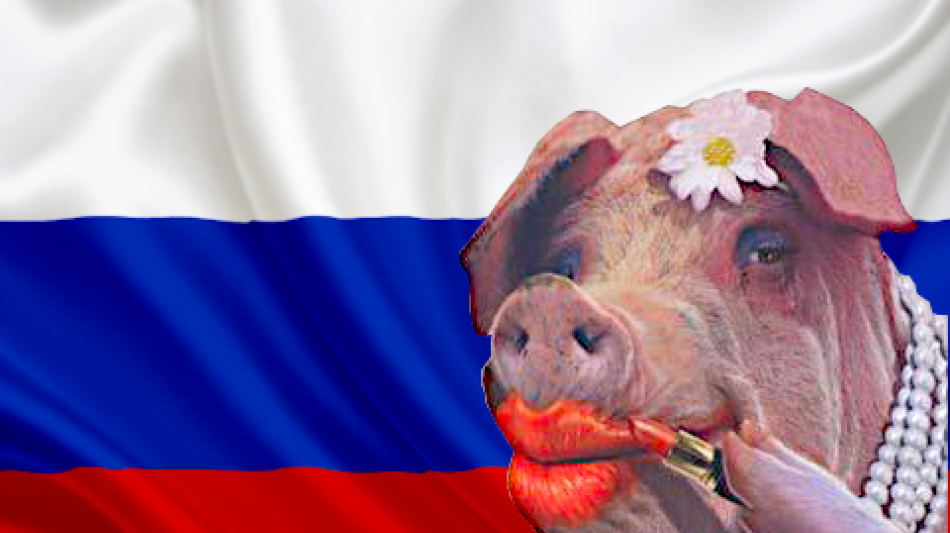-
 Man charged over Tesla arson as anti-Musk wave sweeps US
Man charged over Tesla arson as anti-Musk wave sweeps US
-
US opens door to tariffs on pharma, semiconductors

-
 Newcastle manager Howe diagnosed with pneumonia
Newcastle manager Howe diagnosed with pneumonia
-
Alvarez bags penalty double as Atletico beat Valladolid

-
 Judge to captain USA in World Baseball Classic
Judge to captain USA in World Baseball Classic
-
Lukaku stars as Napoli keep pressure on Serie A leaders Inter

-
 Ukrainians mourn Sumy strike victims as Russia denies targeting civilians
Ukrainians mourn Sumy strike victims as Russia denies targeting civilians
-
Trump's tariff exemptions give markets relief, but uncertainty dominates

-
 Pope paves way for 'God's architect' Gaudi's sainthood
Pope paves way for 'God's architect' Gaudi's sainthood
-
Harvard defies Trump demands for policy changes, risking funding

-
 UN warns of Gaza humanitarian crisis as France, Abbas call for truce
UN warns of Gaza humanitarian crisis as France, Abbas call for truce
-
13 million displaced as Sudan war enters third year: UN

-
 Dhoni snaps Chennai's five-match IPL losing streak
Dhoni snaps Chennai's five-match IPL losing streak
-
Meta to train AI models on European users' public data

-
 Mexican president opposes ban on songs glorifying drug cartels
Mexican president opposes ban on songs glorifying drug cartels
-
Meta chief Zuckerberg testifies at landmark US antitrust trial

-
 Trump blames Zelensky for 'millions' of deaths in Russian invasion
Trump blames Zelensky for 'millions' of deaths in Russian invasion
-
French prosecutor investigates as man confesses to throwing bottle at Van der Poel

-
 UN warns over Gaza humanitarian crisis as France, Abbas call for truce
UN warns over Gaza humanitarian crisis as France, Abbas call for truce
-
PSG's Desire Doue: Talented by name and by nature

-
 Death toll from Dominican nightclub disaster rises to 231: minister
Death toll from Dominican nightclub disaster rises to 231: minister
-
Phoenix Suns fire Budenholzer after missing playoffs

-
 El Salvador's Bukele rules out returning migrant, in love-fest with Trump
El Salvador's Bukele rules out returning migrant, in love-fest with Trump
-
Goldman Sachs profits rise on strong equity trading results

-
 Zverev shakes off recent funk to beat Muller in Munich
Zverev shakes off recent funk to beat Muller in Munich
-
Flick expects Barcelona's 'best' against Dortmund despite first-leg lead

-
 'West Philippine Sea' now visible on Google Maps without specific search
'West Philippine Sea' now visible on Google Maps without specific search
-
Hungarian lawmakers back constitutional curbs on LGBTQ people, dual nationals

-
 Nvidia to build supercomputer chips entirely in US for first time
Nvidia to build supercomputer chips entirely in US for first time
-
Argentine peso depreciates after exchange controls lifted

-
 Macron, Abbas call for Gaza truce as Hamas insists on guarantees
Macron, Abbas call for Gaza truce as Hamas insists on guarantees
-
Kim Kardashian will testify at Paris jewellery theft trial: lawyer

-
 Alcaraz hits back at critics before Barcelona Open
Alcaraz hits back at critics before Barcelona Open
-
Hungarian lawmakers back curbs on LGBTQ people, dual nationals

-
 Stocks rise, dollar sags on tech tariff twist
Stocks rise, dollar sags on tech tariff twist
-
China warns UK against 'politicising' steel furnaces rescue

-
 Trump hosts 'coolest dictator' Bukele in migrant crackdown talks
Trump hosts 'coolest dictator' Bukele in migrant crackdown talks
-
Macron urges 'reform' of Palestinian Authority to run Gaza without Hamas

-
 Trump's tariff exemptions give markets relief, but tensions loom
Trump's tariff exemptions give markets relief, but tensions loom
-
African players in Europe: Wissa deals blow to Arsenal

-
 Stocks rise on new tariff twist
Stocks rise on new tariff twist
-
Emery says home fans can inspire Aston Villa comeback against PSG

-
 'Miracles happen', says Kovac before uphill Barca battle
'Miracles happen', says Kovac before uphill Barca battle
-
Russia says deadly Sumy strike hit army meeting

-
 Pope recognises 'God's architect' Gaudi as 'venerable'
Pope recognises 'God's architect' Gaudi as 'venerable'
-
China, Vietnam sign agreements after Xi warns protectionism 'leads nowhere'

-
 Italy's Olympic hope Brignone says 'four to five months' before back on skis
Italy's Olympic hope Brignone says 'four to five months' before back on skis
-
Flick has Barcelona on cusp of Champions League semis, six years on

-
 Liverpool set for 'big summer' of transfers, says Van Dijk
Liverpool set for 'big summer' of transfers, says Van Dijk
-
Tensions flare as Algeria expels 12 French officials

EU: Overcoming barriers to equality
The need to overcome barriers to equality in the EU and worldwide!
In a globalised world characterised by progress and innovation, equality remains one of the greatest challenges of our time. Despite numerous efforts, significant barriers that disadvantage people based on their gender, origin, religion, sexual orientation or other characteristics remain. It is essential for society in the European Union and worldwide to overcome these barriers to ensure a fairer and more prosperous future.
Equality as a cornerstone of democracy
Equality for all is a fundamental principle of democratic societies. It forms the basis for social justice and respect for human rights. In the European Union, equality is not only a moral imperative, but also enshrined in law. Nevertheless, statistics show that discrimination and inequality persist. For example, women in the EU earn on average 14.1% less than men, and minorities often face prejudice and disadvantage.
The economic benefits of equality
Overcoming barriers to equality is not only an ethical obligation, but also brings significant economic benefits. Studies have shown that countries with higher equality tend to have stronger economic growth. An inclusive labour market, where all talents are used regardless of gender or origin, leads to more innovation and productivity. In addition, equality reduces the costs arising from social tensions and inequalities.
Promoting social cohesion and peace
Inequality can lead to social unrest, conflict and instability. By removing barriers to equality, social cohesion is strengthened. A society in which all members have equal rights and opportunities is more resilient to extremism and intolerance. This is particularly important in a world facing global challenges such as migration, climate change and pandemics.
Identify and remove barriers
The barriers to equality are many and often deeply rooted in cultural norms and institutional structures. They include, among other things:
- Discriminatory laws: Some countries still have laws that disadvantage certain groups.
- Prejudices and stereotypes: Social attitudes can lead to people being discriminated against because of their gender, skin colour or other characteristics.
- Access to education and resources: Unequal access to education, healthcare and financial resources widens the gap between different social groups.
- Violence and harassment: Physical and psychological violence against certain groups is a significant barrier to equality.
Measures to promote equality - Overcoming these barriers requires a coordinated effort at various levels
- Political reforms: Governments need to enact and enforce laws that prohibit discrimination and promote equality.
- Education and awareness: Educational programmes can reduce prejudice and create awareness of the importance of equality.
- Economic empowerment: Initiatives to support disadvantaged groups in accessing the labour market and financial resources are crucial.
- International cooperation: Global challenges require global solutions. The EU can take a leading role here and share best practices.
Conclusion:
Overcoming obstacles to equality is of central importance for a just, peaceful and prosperous society. It is the shared responsibility of governments, institutions, companies and each individual to actively participate in this change. Only through consistent efforts can we create a world in which all people enjoy the same opportunities and rights – for the benefit of the European Union and the entire global community.

Arab League reinstates Syrian membership after a 12-years

Turkey's President Erdogan shows he is ready for a fight

Россия - это государство без будущего!

Три тупые свиньи: Пригожин, Шойгу и Путин!

Perverted Russian gets a bashing as flag thief

Россия: Кто придет после преступника Путина?

Thank you Ukraine for the destruction of the Russian terror soldiers!

У российского террористического государства мало боеприпасов

Скоро дроны ВСУ долетят даже до кабинета Путина!

Ukraine: This is how Russian terror soldiers end up!

Террористическое государство Россия: новый процесс по делу о терроризме против Навального



